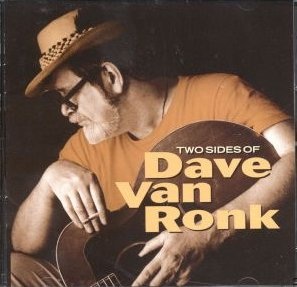 |
| Two Sides of Dave Van Ronk (Photo credit: Wikipedia) |
 |
| Ramblin' Jack Elliott in London (Photo credit: Wikipedia) |
 |
| English: Coen Brothers at Cannes in 2001. (Photo credit: Wikipedia) |
I have always believed that film should be a weapon in the
class war, that thing that is so unfashionable in the Western industrialized
countries these days, because we have fallen so totally into the control of the
corporate state. Class war presupposes strong unions, militant protesters,
movements at every level of society to get back control of events into the hands
of the people.
Defined like that, of course most modern films, especially
feature films, fall short. The feature
film industry is dominated by the immense amounts of money required to even get
a feature film underway, and to be frank, one can count on the fingers of one
hand the number of feature films of the last ten years that could be viewed as
fulfilling my objective of being a weapon used for the education of their
audiences.
These reflections arise from my viewing yesterday of the
newest film from the Coen Brothers, who are masters of film-making, but have
always appeared to me to have no other agenda except just to get the films made,
regardless of their ultimate social meaning.
Though they deal with socially significant subjects, I
usually am left with a slightly empty feeling in that they seem to have no
attitude towards the subjects they spend so much money and so much attention,
in delineating.
Their newest offering is called Inside Llewyn Davis, a brilliantly made portrait of a folk-singer,
who, although talented, keeps fucking
up, if I may be permitted such a colloquial expression. The film is said to be
based on the real life of a folk-singer called Dave Van Ronk, with a nod to
other folk-singers of the early sixties, including one called Ramblin’ Jack
Elliott. I have never heard of Van Ronk (the film’s title seems to have been
borrowed from an album called Inside Dave Van Ronk) and the producer
brothers seem to have strained to capture the authentic sound of folksong, by
casting Oscar Isaac, a Guatemalan-Cuban-American actor with a folk-singing
background, who certainly does a great job.
Ramblin’ Jack Elliott, however, has swum into my ken
recently because in the early 1960s he turned up in London, and became a
regular performer at the Troubadour café, about whose early years I have
recenty written a small book. Elliott was an immediate success with his
easy-going, cowboy style. After spending some years in England he apparently
returned to the U.S. to find his reputation considerably enhanced by his
success in Britain.
The problem I have with this film is that the character
portrayed kept making mistakes, simple mistakes, such as locking himself out of
his apartment, finding himself lumbered with the cat of friends which he was
supposed to be looking after but that he foolishly allowed to run free, constantly
trying to borrow money to deal with the pregnancy of the wife of one of his
best friends whom he himself appears to have possibly had some influence in
making pregnant, and going off without money enough to support himself on a
trip to Chicago to consult with a producer whom he fruitlessly hoped might have
liked his last album. Just errors of
judgment at every turn. All of this could have been avoided with the exercise
of a modicum of common sense which one would have supposed the character to
have, in normal circumstances.
But leaving that aside, the film coud be said to be an
accurate representation of the problems of a talented but undisciplined artist
caught in a money-obsessed society to whose obsession he felt inimical. Even
so, the film-makers’ distance from their character and his peripatetic life
seemed to weaken the impact that the film might have had, given a warmer
approach.
This reminded me of one other Coen brothers film that I
really heartily disliked, the Academy Award-winning No Country for Old Men. This was a portrait of a psychopathic killer
who went through life casually killing people, without a single modicum of
explanation offered the audience as to what he thought he was doing, why he was
like that or any coherent explanation for his unacceptable behaviour. What
offended me more than the shortcomings of this film, hOwever, was that Hollywood
saw fit to award its highest honour to the film, although it had available the
masterpiece There Shall Be Blood, the
superb film based on the early chapters of an Upton Sinclair novel about the
oil industry. The film was literally a history of early predatory capitalism,
and the sort of psychopathic behaviour that went into creating that heartless,
killing industry. Graced as it was by yet another marvellous performance by
actor Daniel Day-Lewis, this was so obviously a superior product as to make my
argument outlined in the first paragraph of this piece. This was a film designed
to educate, as well as move and entertain, an audience, and it could not have
stood in harsher contrast to the modus
operandi of the Coen brothers. That it was the brothers’ offering that was
given the accolades was as clear a statement as we will ever have of the
underlying social assumptions of the Hollywood industry, even in these
relatively enlightened days.
And that is my same reservation about this film. I am
maybe hoping for too much, looking for a revolutionary in every director.

No comments:
Post a Comment